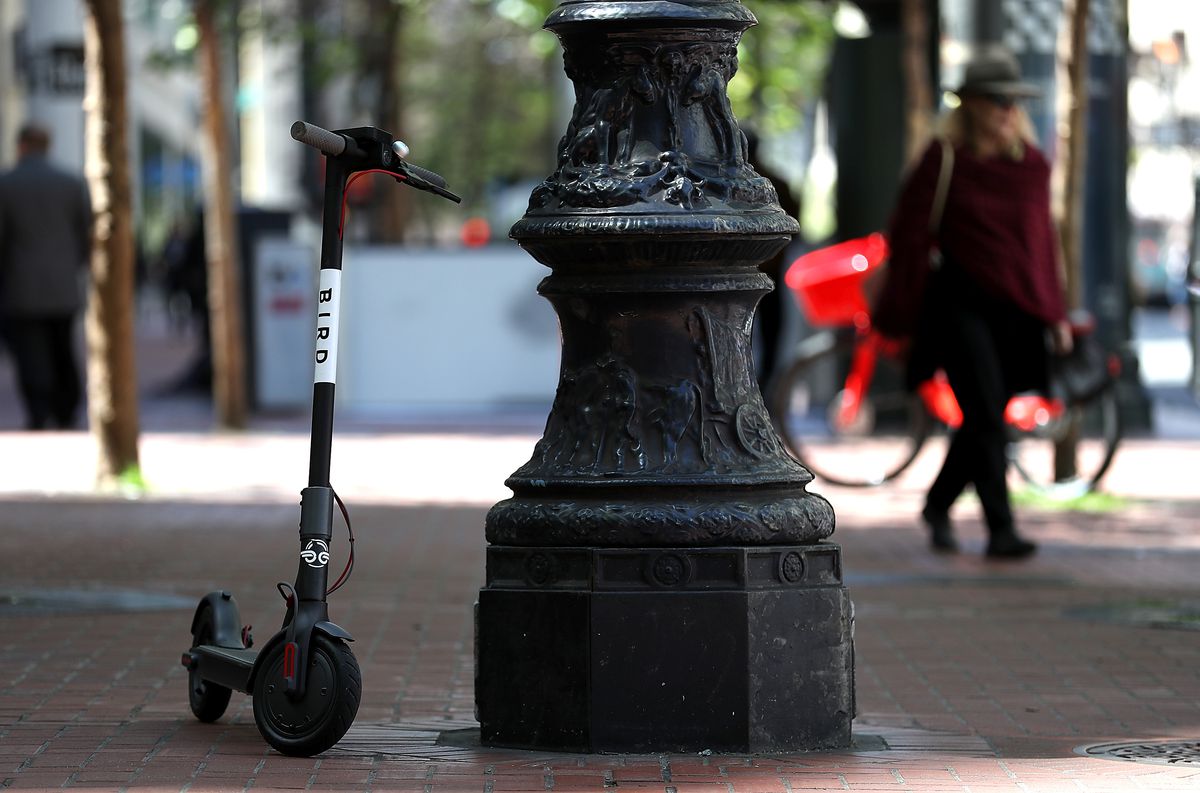Operating an electric scooter-sharing service is expensive and hard. The scooters break down, or they get vandalized or impounded by local law enforcement. Scaling that business globally, like Bird and Lime are trying to do, is even harder. Every scooter company today is operating at a loss, but Bird in particular has an interesting plan to spread the gospel of the scooter without going completely bankrupt.
It involves selling e-scooters to local entrepreneurs, providing them with advice and technical support to get started, letting them incur all the costs associated with maintenance and operations, and then taking a small percentage of each scooter trip. It’s called “Bird Platform,” which the company originally unveiled last November.
But what the Santa Monica-based startup didn’t say at the time was that Bird Platform would be targeted at aspiring scooter entrepreneurs who live in countries outside the US and Europe, where Bird operates its own branded scooter-sharing service. In this way Bird can inspire the creation of new scooter companies that won’t directly compete with its own service, as well as orchestrate the spread of e-scooters in cities around the world, without losing more money than it already is.
“It came out of a brainstorm around how do we take the mission to the world,” Bird CEO Travis VanderZanden told The Verge. “And so, we’re excited about that. We’re also excited because it… allows us to grow faster.”

Bird is planning to rollout Bird Platform in three initial markets: New Zealand, Canada, and Latin America. Local entrepreneurs can buy Bird’s e-scooters at cost, as well as access the company’s tools, products, and technology needed to manage a fleet of shared e-scooters. Bird will even fly in its own operations experts to help launch the business. And in exchange, the company will take 20 percent of each trip fare. Bird typically charges $1 to unlock a scooter, and then 15 cents per minute of riding. The average trip generates around $3.75 in revenue for the company — though assumedly Bird Platform users would set their own prices.
The scooters, which are manufactured by Bird’s partners in China, will come preinstalled with all the firmware and GPS technology, called the “Bird Brain,” that allows them to be deployed as part of a shared fleet. “It’s capital intensive,” VanderZanden said. “What we’ve really tried to do is keep the upfront costs as low as possible.”
In some ways, what Bird is proposing with Bird Platform is very similar to the business model of VanderZanden’s former employer, Uber. That company is famous for being asset-light: independent Uber drivers own their cars, pay for their own gas, and cover most insurance costs. Uber builds the app that connects riders with drivers, and then takes a percentage (around 30-35 percent) of each fare. “In some ways it’s similar [to Uber],” VanderZanden said. “But in some ways, it’s different, just because it’s more operationally intensive.”
It’s an interesting move by Bird, especially considering how wildly unsustainable the scooter-sharing business is turning out to be. Recently, Quartz’s Alison Griswold crunched the numbers from Louisville, Kentucky, and found that the median scooter took 70 trips over 85 miles, and had a lifespan of 23 days. Lifespan is a big deal for scooter companies: the longer the scooters can stay in operation, the more money they can make for the company. And right now, these scooters aren’t living long enough to earn a profit.
VanderZanden has been staving off the winter doldrums (colder weather, fewer scooter trips) by mulling over the unit economics conundrum. Most of the solution rests in the company’s ability to roll out its new, longer-lasting, more rugged scooter, the Bird Zero. He wouldn’t say what percentage of Bird’s fleet is now comprised of the more rugged scooter. But he did say that in order for Bird to eventually break even, the scooters will need to increase their lifespan to six months.
“We’ve been hard at work on future hardware as well, with even bigger batteries and more ruggedized [scooters], which will circle back on at some point in the future,” he said. “We’re looking at every technology you could imagine. If it makes sense from an economic standpoint, and ideally improves the rider experience, then it’s a no-brainer.”
https://www.theverge.com/2019/3/7/18253522/bird-platform-scooter-new-zealand-canada-latin-america

